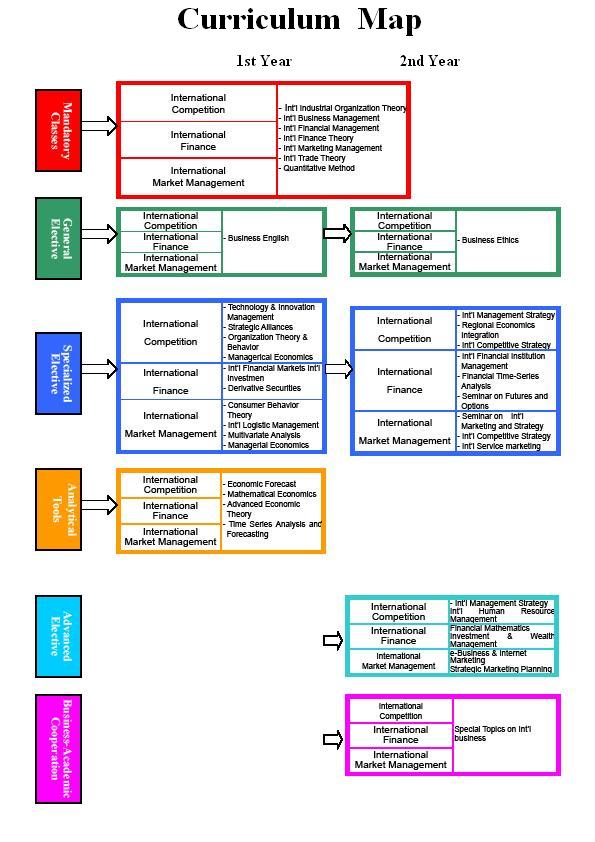
| Including empirical study, theoretical research, and tools. | ||
| Topic | Major Requirement | Electives |
| Industry |
Theory of International Industrial Organization |
International Competitive Strategy |
| Finance |
International Financial Management |
Derivatives Seminar on International Marketing and Strategy Financial Time-Series Analysis Financial Mathematics Special Topics on International Business Financing Special Topics on International Financial Management |
| Financial Markets |
Theory of International Finance |
International Investment International Financial Markets International Financial Institution Management |
| Marketing |
International Marketing Management |
Strategic Marketing Planning Electronic Business and Internet Marketing Special Topics on International Marketing and Strategy Theory of Consumer Behavior Special Topics on International Marketing Management |
| Business Administration | International Business Management | Organization Theory and Behavior International Human Resource Management International Financial Institution Management Special Topics on International Business Financing |
| Trade | International Trade Theory | International Logistic Management |
| Tools | Quantity Method, Master Thesis | Mathematical Economics Multivariate Analysis Economic Forecast |
| Economic | Advance Economic Theory Economic Management |
|
| Common Electives | Enterprise Ethics Business English |
|
| Master Thesis | ||
The required credits to graduate are 46 credits (the 6 thesis credits are not included)
Course Details
|
|||||||||||||||||||||||||||||||||||||||||||||||||||||||||||||||||||||||||||||||||||
Curriculum Map


